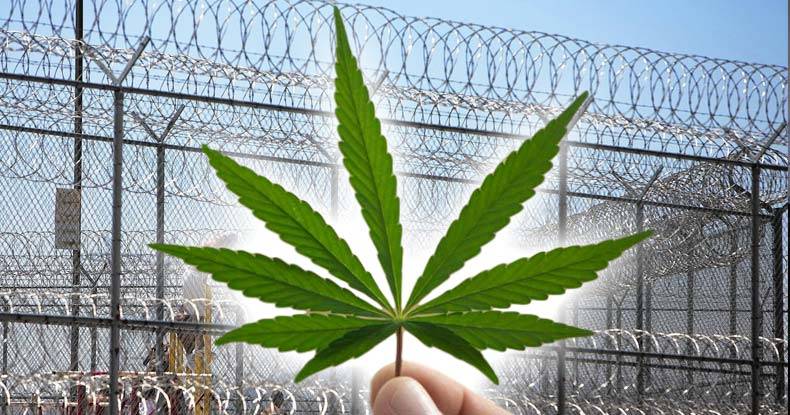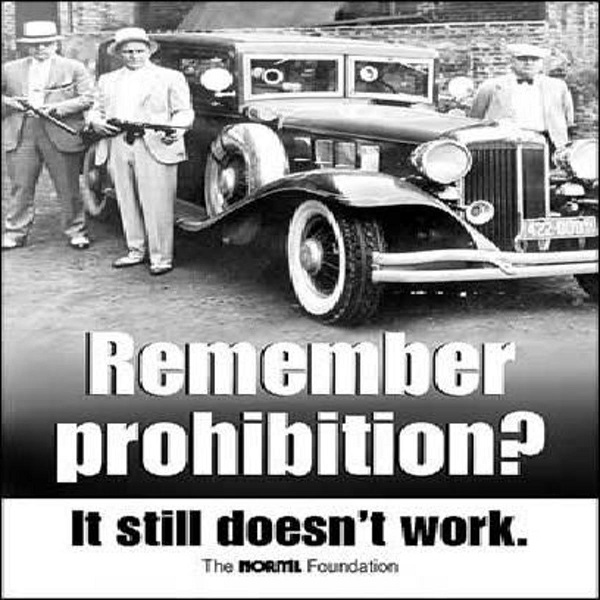There are a lot of differing political philosophies in the world, and they disagree on a great many matters. The closest we’ve been able to get to a universally agreed-upon value is that the Government ought to act to minimise human suffering. This article will make the argument that prohibition ought to be relaxed because it is cruel.
Cruelty is a malicious disregard for the suffering of other sentient beings. It was cruel to perform electroshock therapy on people without their consent. It is cruel not to summon medical help when one encounters a person in distress. It was cruel to not allow homosexuals to express their genuine regard for each other. Cannabis prohibition falls into the same category.
Some people will argue that not being allowed to use cannabis doesn’t constitute cruelty because it’s not really a big deal. There are many other things that we’re not allowed to do, so what does it matter if cannabis is another one of those things?
But that’s looking at it around the wrong way. People naturally live, and part of life is to explore what comes your way. People will naturally use cannabis, because others will offer it to them. Some of those people will find they really like it, perhaps even enough to use it daily. Punishing people for an act that they do naturally – especially when that act harms no-one – is an act of cruelty.
It’s cruel to cage a bird, or keep a cat inside, because it’s a violation of their natural instincts to be free. The natural instincts of a human being is to explore consciousness. Isn’t it, then, an act of cruelty to prevent them? Preventing a human from exploring their consciousness is as unnecessarily restrictive as keeping a cat or dog in a small cage for their whole life.
Forcing people to follow arbitrary laws and dictates is cruel, because it makes those people feel like they are of less value than those imposing the rules. Putting someone in a cage where they suffer intensely from being in close physical contact with extremely dangerous people, just because they don’t follow those arbitrary decrees, is beyond cruel. Yet, that is what our system does in the pursuit of enforcing cannabis prohibition.
Perhaps the worst cruelty is that done to the family members of those who are incarcerated for cannabis offences. For a family member who is relying on certain other members of their family for income or support, it seems almost egregious for the state to incarcerate those others on account of a cannabis offence.
It’s unlikely that many cannabis prohibitionists would like to explain to a small child how the supposed dangers of cannabis are so great that it necessitates putting their parent in jail. They would much rather prefer that social workers and Police officers explained that to the children of parents imprisoned for cannabis offences. This cowardice exposes that cannabis prohibition is underpinned by an absence of compassion.
Some people ought to think about what sort of world they want to live in, because the compassion or cruelty of the laws under which we live have an impact on whether people act to ameliorate each other’s suffering or not. The legal system, whether we like it or not, sets the standard for whether we are compassionate or harsh towards those who really crash out.
Passing a law that says a person has to go in a cage if they grow a medicinal plant sets a precedent for what the appropriate level of compassion in our society is. And it’s a low one. Locking people up for using medicinal flowers shows that we are a brutal people. It shows that even if a person can provide a fair reason for using a medicinal substance, the Government can just bulldoze through and imprison them anyway.
Some of the older prohibitionists might like to consider that they themselves will soon be in need of compassion, because their bodies will continue to decline towards death. In a person’s final few years, they are just as dependent on the goodwill of others as they are in their first few years. If one is old, therefore, it’s to one’s own benefit to normalise compassion and empathy.
Even if the argument is made that the point of the cannabis laws is to prevent suffering (by way of preventing addiction and mental illness), the reality is that there are hundreds of millions of cannabis users who are happy to tell you that their use of cannabis prevents suffering. It’s cruel not to listen to these people, to tell them that their claims of being helped by cannabis are delusions and that they should be in a cage for their own good.
Ultimately, this argument asserts that there’s enough cruelty in the world, and that we don’t need any more. Cannabis should be legalised because it’s cruel to punish people for using a medicinal flower that doesn’t harm anyone. This would contribute to a world with less suffering in it – something that we all benefit from.
*
This article is an excerpt from The Case For Cannabis Law Reform, compiled by Vince McLeod and due for release by VJM Publishing in the summer of 2018/19.




